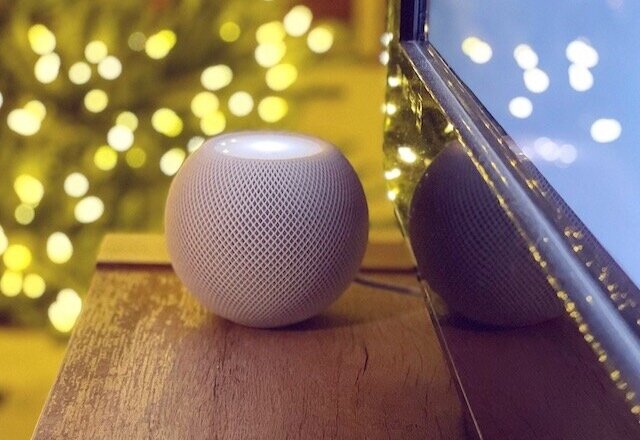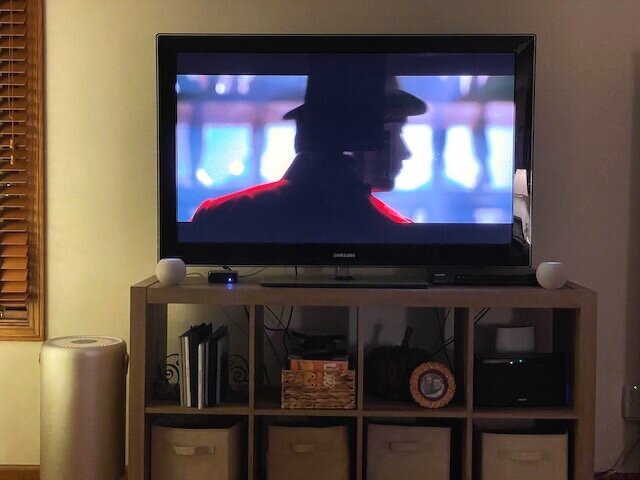The HomePod mini Sounds Really Good, but That's Not the Point
/The first thing that occurred to me when I opened a pair of HomePod minis was that they are, in fact, very mini. Like, fit in the palm of my hand, mini. I can confidently say that if you buy one, even knowing that it is very small, it will seem smaller than you expect once you have it in your hand.
It would be hard to overstate the importance of the size of the HomePod mini, but I’ll have to come back to that in a minute. What most people want to know is whether they sound any good, especially considering that small size.
My general impression is that, yes, they sound good. Not amazing, but good for what they are. They most certainly sound better than an Echo Dot or Nest Home Mini. On the other hand, the HomePod mini is twice the cost of either of those smart speakers.
Compared to a Nest Audio, or even an Echo, the HomePod mini is punching above its weight, despite carrying the same price tag. Both of those devices will give you better sound, and more of it. It certainly doesn’t compete with the original HomePod, at least not on sound.
You can pair two HomePod minis into a stereo pair. You can even use them as a stereo set of speakers for your AppleTV. I set them up that way to give it a test. While they are definitely better than the speakers built-in to my 10-year-old Samsung plasma, and they put out just enough sound to fill our living room with its vaulted 18-foot ceiling, they aren’t a substitute for any kind of home theater set up.
That said, I’m not sure sound is the reason Apple made the HomePod mini.
To understand what I mean, consider that Apple most certainly did make the original HomePod focused on the quality of the sound the company could fit into a small speaker. To that end, it succeeded. The HomePods are probably the best-sounding speaker of that size that you can buy. You just have to be willing to spend $300 a piece to get it.
As a result, very few people have been willing to spend that money. It just wasn’t worth it. You could get a smart speaker that sounded really good, was much, much smarter, and cost at least $100 less. For roughly the same price, you could get a device that sounded as good, but—in some cases—had both Google Assistant and Alexa.
That single fact is why there are a few hundred million devices powered by Alexa and Google Assistant, instead of Siri. Especially that part about being smarter.
Which, I think, brings us to the real reason Apple made the HomePod mini—Siri. In my experience with the HomePod mini over the past few days, Siri has grown up in a big way. That’s important if Apple is ever going to gain share in an increasingly important market—your home.
That’s why I think the HomePod mini is so interesting—because it represents Apple’s best effort yet to gain a foothold in the smart home. Until now, Siri lived mostly on your iPhone or iPad. Sure, she’s also on the Mac, but I can’t think of the last time I tried to summon her there. In fact, as I set up my M1 MacBook Air this week, and an Intel version for my wife a few months ago, I realize I instinctively disable the “enable Ask Siri” feature.
Siri, and by extension, HomeKit, Apple’s smart home platform, has a lot of work to do to catch up. Not only does it have far fewer of the usual speaker-shaped devices out in the wild, the ones it does have are far less capable at doing the things people buy those devices to do. Most of that is because of Siri.
That’s a problem, because both Alexa and Google Assistant are very good. And, if Apple wanted to own the devices you use to power your home in the same way they own the ones you carry in your pocket, it needed to be as good.
Both Amazon and Google also have far more support for smart devices, though HomeKit has come quite a long way. In addition, the Project Connected initiative supported by all three companies will make connecting to those devices much easier in the future. Having little Siri devices that are actually affordable is really important to Apple if it’s ever going to catch up.
To that end, the HomePod mini is very good—at Siri. It’s far more responsive than the original HomePod, even more so than my iPhone. It also has a few tricks, like the ability to send announcements to or from your devices.
Most importantly, the HomePod mini is also the best Apple device at knowing when you’re trying to activate Siri, hearing what you’ve said, and performing the right command. All of those are pretty critical features for a device you might put in a room to, say, control the lights—or anything else really. That Apple has finally gotten it right should be music to your ears.

